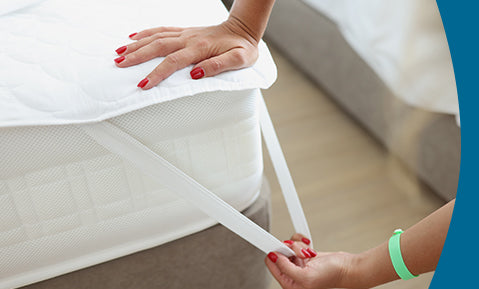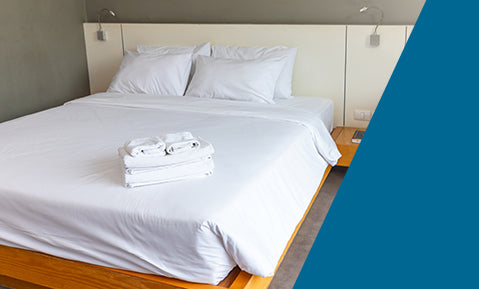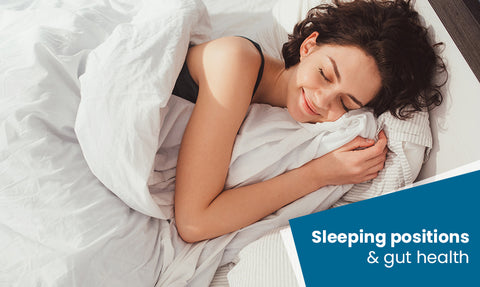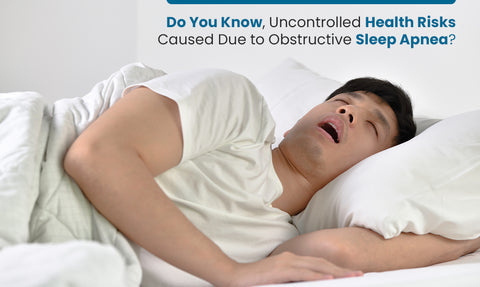
If you wake up in the middle of the night with drenched pyjamas and sheets even when the room is cool, you may suffer from night sweats. Also known as sleep hyperhidrosis, night sweat can have many underlying causes, which may require medical attention.
Sweating is a natural system via which our body cools down and prevents overheating. The sweat released from our body evaporates and takes away the heat with it.
In this article, you’ll learn more about the causes and symptoms of, and management techniques for night sweat.

Causes of Night Sweat
While sweating is a normal response to overheating, it may sometimes occur because of issues such as hot climate or exercise.
Night sweats may be a response to:
Intake of substance
Certain substances, such as alcohol and some drugs, can induce perspiration and cause excessive sweating while you sleep.
Some medications mentioned below also increase sweating at night:
- Antidepressants
- Hormone therapies
- Steroids
- Diabetes medications
If you experience excessive sweating after beginning a new drug, then talk to your doctor about the same. In such cases, night sweat is usually a side effect of the medicine.
Infections
Infections that may increase night sweat include:
- Tuberculosis: a serious bacterial infection that generally affects the lungs, but may infect any other part of the body.
- HIV
- Endocarditis: infection in the heart valves.
- Brucellosis: infection caused by consumption of unpasteurized products from infected animals
- Osteomyelitis: infected bones
Infections usually present with other symptoms, such as:
- Body pain
- Lack of appetite
- Fever and chills
- Weakness and fatigue
If these symptoms persist for a few days, then you should visit your doctor.
Hormone imbalance
Without proper hormonal balance, our body cannot function properly. Many hormone disorder cause excessive night sweats, disorders including:
- Low testosterone
- Hyperthyroidism
- Menopause
- Carcinoid syndrome
Of males aged 45 or above, almost 39 percent may experience a drop in their testosterone levels, a drop that can lead to various conditions including night sweats.
Women may experience night sweats in times when hormone levels in their body changes. Such times include:
- Menopause
- Postpartum night sweats (just after giving birth)
- Pregnancy
Apart from night sweats, people with hormonal disorders may experience:
- Unexplained weight loss
- Sexual dysfunction
- Changes in menstruation
- Headaches
- Lethargy
- Mood change
However, once identified your doctor helps you manage hormone disorder, relieving symptoms including night sweat.
If you’re on hormonal therapy, you may experience night sweats. You should discuss this problem with your doctor.
Anxiety and stress

Mental health conditions, especially anxiety, increase sweating. Increased sweating may indicate that you’re stressed or anxious.
Apart from sweating, you may experience the following:
- Negative thoughts impinging on your mind again and again
- Insomnia (problem in falling or staying asleep)
- Digestive system problems
- Unexplained chronic pain (resulting from muscle tension)
- Mood changes and irritability
- Lethargy and depression
Further, anxiety and stress can negatively impact your cognitive abilities and prevent you from functioning at your best.
If you’re stressed or anxious, try one of these relaxation techniques.
And deal with the underlying cause of anxiety or stress, as it will permanently resolve the problem. You can try psychotherapy or hypnotherapy to relieve stress and anxiety disorders.
Gastroesophageal reflux disease (GERD)
If the acid in your stomach frequently flows back into the esophagus (tube connecting your mouth and stomach), you have GERD.
Night sweats are a common symptom of GERD.
Apart from night sweats, GERD can cause:
- Heartburn
- Regurgitation of food and liquid
- Chest pain
- Sleep disorders
If you experience acid reflux 2 or more times in a week, then you suffer from GERD. Your doctor can prescribe you medication to decrease the amount of acid in your stomach.
Obstructive sleep apnea
When your upper airway is blocked because of your throat or enlarged tonsils, the air won’t pass easily through your windpipe, resulting in an inability to breathe properly.
So you’ll wake up several times during the night gasping for breath.
In a 2013 study, it was noted that nocturnal sweating is a common symptom of untreated sleep apnea. In fact, it’s three times more likely to happen in people who’ve untreated obstructive sleep apnea.
Common symptoms of obstructive sleep apnea include:
- Loud snoring
- Waking up gasping for air
- Excessive daytime sleepiness
- Severe headaches
- Sore throat without any recent infection
- Anxiety and depression
Sleep apnea may lead to serious medical complications, so it is better to get a diagnosis from your doctor.
Cancer
Although not commonly the case, unexplained night sweats may be a symptom of cancer.
If you feel generally fatigued and experience night sweats for more than 2 weeks, then it is a good idea to get a diagnosis immediately.
Here are the types of cancers associated with night sweats:
- Leukemia
- Non-hodgkin’s lymphoma
- Hodgkin’s lymphoma
Common symptoms of cancer include:
- Excessive fatigue and weakness
- Unintentional weight loss
- Fever and chills
- Bone pain
- Swollen lymph nodes
Successful treatment of cancer largely depends upon the stage at which it’s identified. So it’s better to get a diagnosis as soon as possible.

Obesity
Obesity may increase sweating at night. It generally makes you feel hotter than normal, inducing excessive sweating during both the day and the night.
Getting into a caloric deficit and exercising regularly can help you lose weight, which may ameliorate the symptoms of night sweat.
Other health conditions
Night sweats can be a symptom of a host of medical conditions. Some other medical conditions that may cause night sweats include:
- Autoimmune diseases: because of increased inflammation, people with autoimmune diseases, such as rheumatoid arthritis, may experience more sweating.
- Cardiovascular diseases: diseases of the cardiovascular system increase sweating.
- Neurological disorders: they can lead to many different and often unconnected symptoms.
Preventing and relieving night sweats
While it is important to get a diagnosis from a certified medical profession, there are things you can do to relieve your symptoms.
Here are a few management techniques for night sweat:
- Cold environment: sleep in a relatively colder environment. You can set your thermostat to a low temperature in order to cool down your room. As temperature also affect the way you sleep.
- Wear lighter fabric: fabric made of natural fibers such as cotton promotes airflow and enables hot air to escape.
- Use cooling pillows: pillows retain body heat and pass it back to our body. Use cooling gel pillows to enjoy a cool experience.
- Hydrate: drink plenty of water, as you lose a lot of it because of excess sweating.
- Practice relaxation techniques: because of anxiety, your body can sweat more. Calm down your mind by practicing relaxation techniques.
- Manage weight: it is important to maintain a healthy weight in order to reduce sweating.
Although many people are embarrassed, it is important to receive treatment for any underlying health issues that may be causing night sweat. Talk to a certified medical profession and get a diagnosis as soon as possible.
Is night sweat the same as hot flash?
No. Hot flash is a feeling of sudden intense warmth, especially over the face. They often appear suddenly, but may take a few minutes on some occasions.
Here are a few symptoms of hot flash:
- Intense warmth, especially over face
- Excessive sweating, despite being rested
- Faster than usual heartbeat
- Redness in various parts of the body
Conclusion
Night sweats are pervasive all around the world. Although they’re of no major concern, talking to a health profession and treating the underlying cause may provide permanent relief. To better manage your symptoms, you can rely on tips such as maintaining a healthy weight, hydrating regularly, and using cooling pillows.












